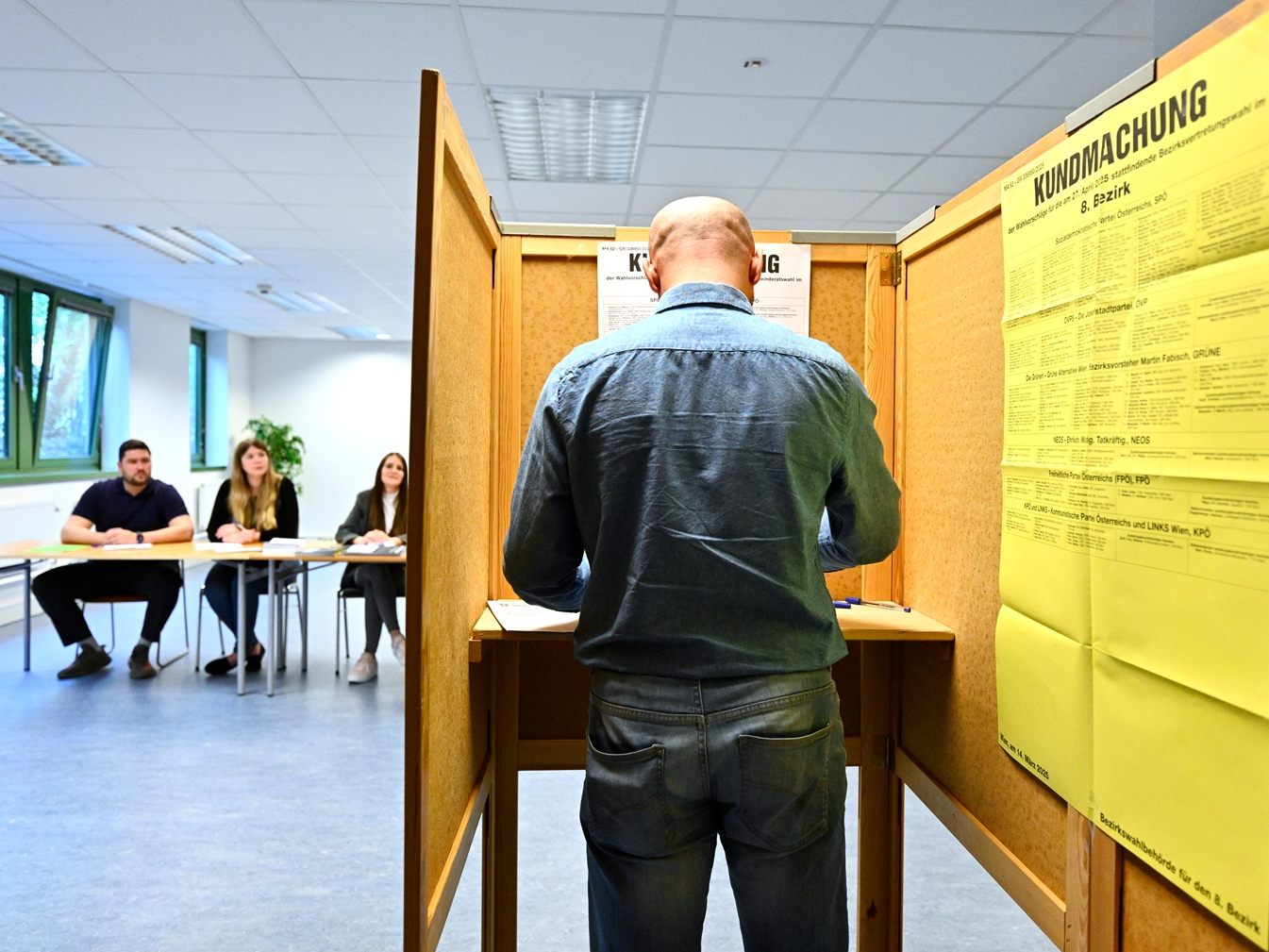Asylum, Inflation, Education: These Were the Election Motives in the Vienna Election 2025

In the election survey conducted by FORESIGHT and ISA for ORF for the Vienna municipal council election on Sunday, 58 percent of respondents stated that they consider Vienna a livable city. This is significantly less than in the last election in 2020, when 74 percent of those surveyed felt this way. This time, however, 37 percent said that Vienna has "lost a lot of quality of life", compared to 23 percent in the last election.
There were naturally large differences in this question between voter groups. While 90 percent of Green voters believe that Vienna is overall a very livable city, 76 percent of FPÖ voters said that a lot of quality of life has been lost.
"Substantive Positions" in the Lead
This is also reflected in the reasons for the voting decision. For all parties, the "substantive positions" are in the lead - this also applies to the FPÖ, namely with 66 percent. However, close behind (59 percent) is the desire to "send a signal to federal politics." This motive is less pronounced in other parties, for example, among the Green voter group with only 25 percent, even though the Greens are also not represented in the federal government.
What Election Motives?
Nevertheless, overall, just over half, namely 51 percent, are "very satisfied" (10 percent) or "quite satisfied" (41 percent) with the current city government. 24 percent stated they are "not very satisfied" and 20 percent "not satisfied at all". Dominant election motives across all voter groups were primarily the topics "Asylum and Immigration" with 47 percent and "Price Increases and Inflation" with 34 percent. Only the Green (55 percent for "Environmental and Climate Protection") and Pink voter groups (47 percent for "Education") considered other topics more important. Overall, the aspects "Education" (23 percent), "Crime and Security" (19 percent), and "Healthcare and Nursing" (18 percent) were less decisive for the election.
Only 29 percent of respondents stated they look "with confidence" at the city's financial budget. Similarly, a minority, namely 36 percent, look with confidence at the ability of politics to manage the coexistence of the Viennese population well. 39 percent view this question with concern, 16 percent with anger. The rest did not provide an answer or did not want to commit. Among the blue voter group, only 16 percent view this issue with confidence. There is practically no difference in this question between respondents with and without a migration background.
Who Should Govern After the Vienna Election?
In general, 70 percent of respondents want to see the SPÖ in the city government, 40 percent the NEOS, and 34 percent the Greens. 30 percent are in favor of the ÖVP and 26 percent for the FPÖ. Among the SPÖ voter group, the NEOS are the preferred coalition partner (55 percent). 39 percent of the social democratic electorate wish for the Greens as a government partner, while only 20 percent prefer the ÖVP.
SPÖ strong among people with a migration background
The SPÖ performed strongly among those over 60 years old (43 percent), weakest in the age group 35 to 59 with 35 percent. In this group, the Blues were able to score (23 percent). The difference is even greater among voters with and without a migration background. The Social Democrats reached 37 percent among people without a migration background, 48 percent among first-generation migrants, and even an absolute majority of 52 percent in the second generation.
The FPÖ was able to achieve a relative majority among employed people without a high school diploma: 37 percent gave their vote to the Freedom Party, only 33 percent to the SPÖ. However, the FPÖ performed weakly among employed people with a high school diploma (11 percent), while in this group the SPÖ (38 percent) remained stable and the Greens (22 percent) performed strongly. The results are balanced between women and men. The Greens were chosen more by women (17 percent to 12 percent), while the differences for the other parties remain within a range of two to three percentage points.
Three quarters made their voting decision weeks ago
Compared to the year 2020, the timing of the voting decision remained relatively stable: In 2020, 71 percent had decided more than three weeks before the election, this time it was 73 percent. Only 10 percent made their voting decision in the last few days. For the study, 2,494 people were surveyed between April 17 and 26, 2,033 of whom were declared voters. Telephone and online interviews were conducted, with a margin of error of about two percent.
Another study conducted by Peter Hajek on behalf of Puls24/ATV comes to similar conclusions. Here, too, 31 percent of respondents see "immigration" as the "most pressing issue" for the mayor after the election, followed by "inflation / rising prices" with 14 percent. "Education & Schools" with 12 percent and "Health & Care" with 10 percent also rank behind. It is also notable that 81 percent of the FPÖ voter group feel "rather insecure" (37 percent) or "very insecure" (44 percent). In contrast, this applies to only 14 percent ("rather insecure") and two percent ("very insecure") of Green voters. The city's COVID-19 management also seems to have been an issue for the blue voter group: 27 percent say it "greatly influenced" their voting decision, while another 19 percent say it "somewhat influenced" it.
(APA/Red)
This article has been automatically translated, read the original article here.





